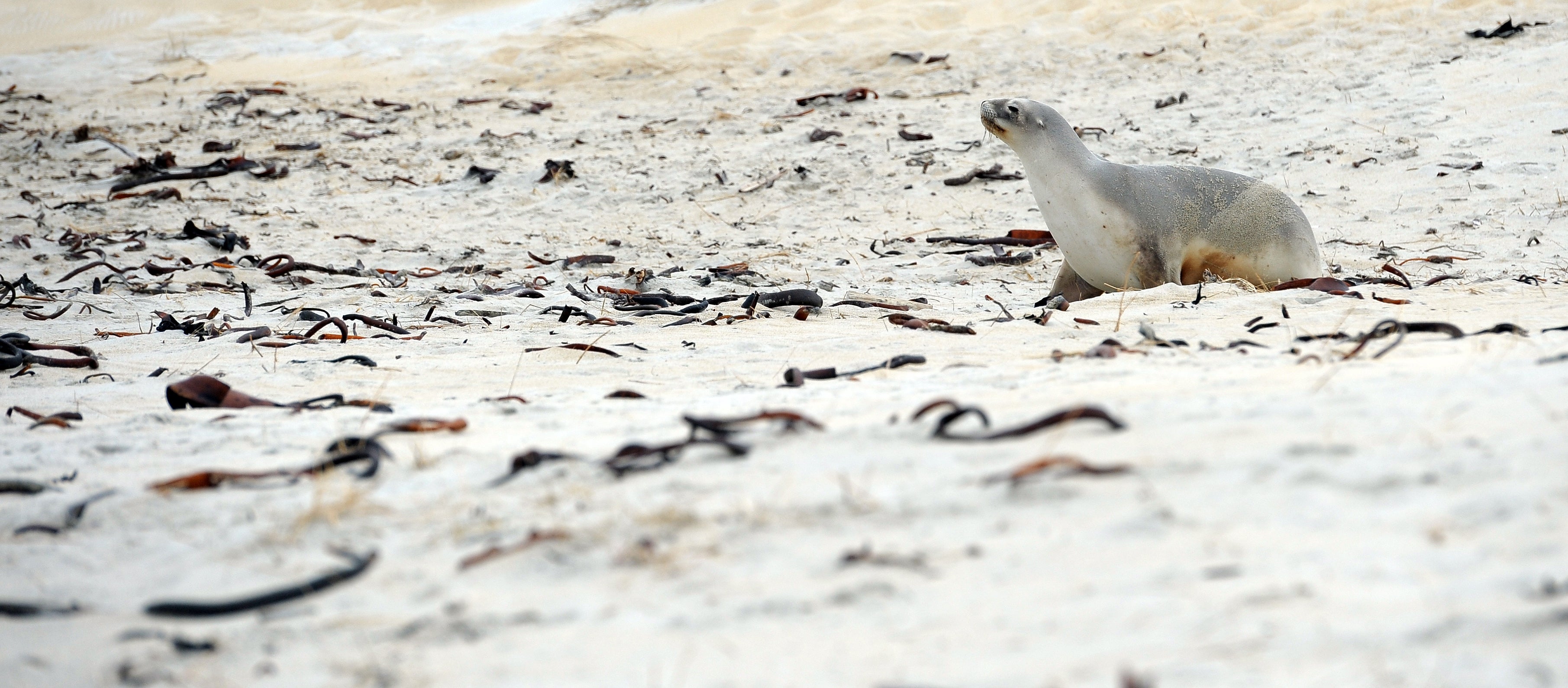Mysterious California sea-lion deaths linked to cancers caused by chemicals dumped after WWII
Scientists may have solved a decade's long mystery as to why 18-23% of California sea lions die of cancer, after discovering high amounts of chemicals in their blubber - now they're warning that human could be affected too

Your support helps us to tell the story
From reproductive rights to climate change to Big Tech, The Independent is on the ground when the story is developing. Whether it's investigating the financials of Elon Musk's pro-Trump PAC or producing our latest documentary, 'The A Word', which shines a light on the American women fighting for reproductive rights, we know how important it is to parse out the facts from the messaging.
At such a critical moment in US history, we need reporters on the ground. Your donation allows us to keep sending journalists to speak to both sides of the story.
The Independent is trusted by Americans across the entire political spectrum. And unlike many other quality news outlets, we choose not to lock Americans out of our reporting and analysis with paywalls. We believe quality journalism should be available to everyone, paid for by those who can afford it.
Your support makes all the difference.Hundreds of California sea-lions are dying of a mysterious cancer possibly caused by chemicals dumped into the ocean more than 50-years-ago, scientists have claimed.
For decades environmentalists have been puzzled over the rise of aggressive, fatal cancers in the kidneys, prostate and bladder of the west coast animals.
Now, they may finally have an answer after a team of pathologists, virologists, chemists and geneticists from the Marine Mammal Center in Sausalito, California, worked for 20-years to analyse tissue samples from 394 of the animals who died.
The study, which was published in the Frontiers in Marine Science journal, discovered the presence of highly toxic, industrial chemicals, pesticides and oil refinery waste in their blubber, which triggers a previously unknown herpes virus that makes them prone to certain carcinomas.
Pádraig Duignan, chief pathologist at the Marine Mammal Center and co-author, told The Los Angeles Times: “It is extraordinary, the level of pollutants in these animals in California. It is a big factor in why we’re seeing this level of cancer.”
The prevalence of these cancers is believed to be one of the highest seen in any mammals, with 18 to 23% of adult sea lions examined after death over the past 40-years suffering from urogenital cancers, the report found.
The chemicals include the formerly common insecticide DDT, which was first used in America following the Second World War on crops and to control malaria, typhus and bubonic plague.
It was banned in the US in 1972 after studies showed it was toxic to wildlife and caused cancer in mammals by accumulating in fatty tissue.
Frances Gulland, a researcher at University of California, Davis, told The Los Angeles Times that DDT can take generations to break down once in circulation and that the sea-lions are dying of “high levels of legacy compounds that are still in the environment.”
Researchers noted that the US’s largest DDT manufacturer dumped waste near the Channel Islands, where a large number of California sea lions breed and feed their pups.
Dr Gulland said that the findings raised concerns over the impact on humans who use “the same waters...[to]...swim and surf in, eating a lot of the same seafood...”
DDT was the subject of campaigner Rachel Carson’s seminal 1962 book, The Silent Spring, in which she called out the chemical industry for spreading ‘disinformation’ and public officials for allegedly looking the other way.
The book contributed in part to the ban of the insecticide and the creation of the US Environmental Protection Agency in 1970.


Join our commenting forum
Join thought-provoking conversations, follow other Independent readers and see their replies
Comments